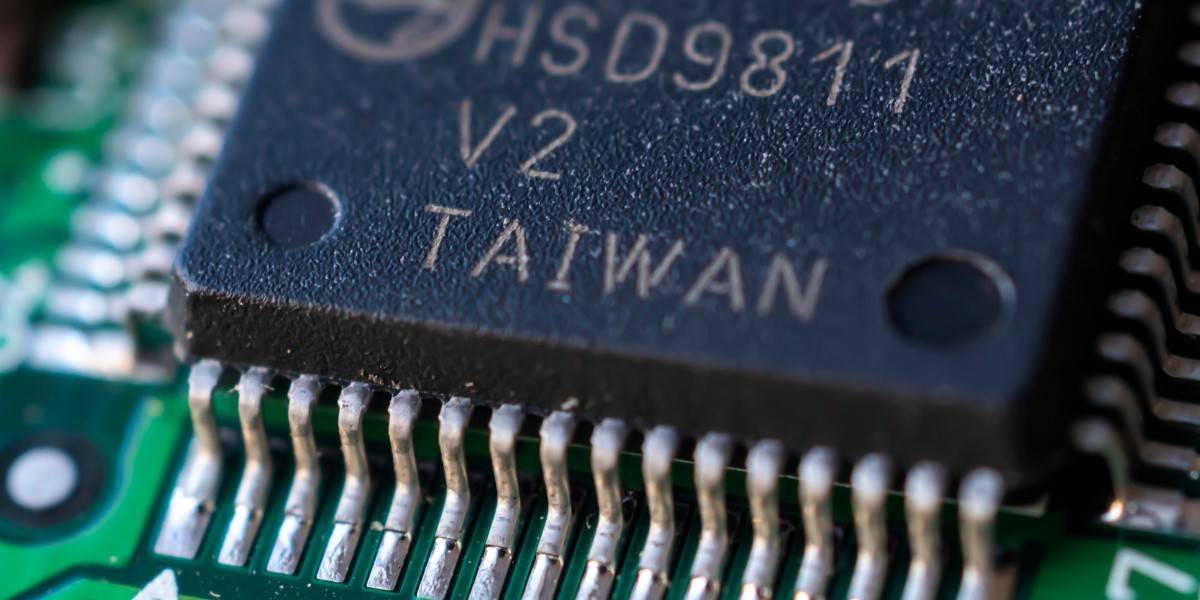Teardown Finds Huawei's 5nm Notebook Processor Was Made In Taiwan, Not China

Did Huawei's domestic fab partners somehow develop the means to mass produce a 5nm laptop chip in spite of US sanctions designed to prevent just that? No, they most certainly did not.
According to a teardown of Huawei's Qingyun L540 notebook by testers at TechInsights, the mysterious 5nm Kirin 9006C processor it contained was actually manufactured by Taiwan Semiconductor Manufacturing Co, not from a Middle Kingdom manufacturer.
When the 14-inch ultralight first appeared in early December, the presence of a 5nm processor spurred furious speculation that China's domestic semiconductor manufacturing capability was far more advanced than previously thought.
This speculation was understandable as just a few months earlier, Huawei had launched the Mate 60 Pro smartphone powered by a 7nm system on chip apparently manufactured by China's Semiconductor Manufacturing International Co. (SMIC).
SMIC had been rumored to have developed the means to produce 7nm process tech for some time, but Huawei's Kirin 9000S was one of the first examples of it being put into production. But the 9006C looks to be a different story.
An investigation into the underlying silicon's origin showed, that "analysis confirms with high confidence that the HiSilicon Kirin 9006C is indeed manufactured by TSMC, dispelling debates about SMIC involvement."
- Huawei finally gives up on US schmoozing efforts
- Huawei bets its 2024 on datacenter infrastructure
- BT misses deadline for removing Huawei from network core
The notebooks' processor bears a strong resemblance to the HiSilicon Kirin 9000 which was packaged in the 35th week of 2020, the team concludes. "The die uses the same BEOL [back end of line] stack and process node that TechInsights has reported for the Kirin 9000 processor."
In the years since Huawei attracted the US' ire, both the Trump and Biden administration have steadily ratcheted up export controls on Chinese designers developing domestic semiconductors. Recently Biren and Moore Threads, two of the Middle Kingdom's more promising GPU vendors, faced similar sanctions after the US Commerce Department named both on its "Entities List."
The Register asked Huawei for comment regarding the origin of the L540's processor; we'll let you know if we hear anything back. ®
From Chip War To Cloud War: The Next Frontier In Global Tech Competition
The global chip war, characterized by intense competition among nations and corporations for supremacy in semiconductor ... Read more
The High Stakes Of Tech Regulation: Security Risks And Market Dynamics
The influence of tech giants in the global economy continues to grow, raising crucial questions about how to balance sec... Read more
The Tyranny Of Instagram Interiors: Why It's Time To Break Free From Algorithm-Driven Aesthetics
Instagram has become a dominant force in shaping interior design trends, offering a seemingly endless stream of inspirat... Read more
The Data Crunch In AI: Strategies For Sustainability
Exploring solutions to the imminent exhaustion of internet data for AI training.As the artificial intelligence (AI) indu... Read more
Google Abandons Four-Year Effort To Remove Cookies From Chrome Browser
After four years of dedicated effort, Google has decided to abandon its plan to remove third-party cookies from its Chro... Read more
LinkedIn Embraces AI And Gamification To Drive User Engagement And Revenue
In an effort to tackle slowing revenue growth and enhance user engagement, LinkedIn is turning to artificial intelligenc... Read more

